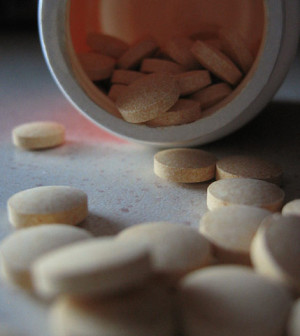Don't Miss
- FDA Approves New Antibiotic Against UTIs
- New School Lunch Rules Target Added Sugars, Salt
- Dairy Cows Moved Across State Lines Must Now Be Tested for Bird Flu
- TikTok Riddled With Misleading Info on Health: Study
- Emulsifier Chemicals Are Everywhere in Foods. Could They Raise Diabetes Risk?
- Opioids During Pregnancy May Not Raise Psychiatric Risks for Offspring
- Could Heartburn Meds Raise Your Migraine Risk?
- Drug, Alcohol Abuse Goes Untreated in Many Ex-Prisoners
- Watchdog Group Says U.S. Food Recalls Rose Again Last Year
- Genes Could Mix With Pesticide Exposure to Raise Parkinson’s Risk
Health Tip: Get the Facts on Iodine
By LadyLively on November 30, 2015

If you’re dwelling on the subject of getting enough minerals, then calcium, iron and potassium may be more on your mind than iodine.
But don’t neglect the latter, the Academy of Nutrition and Dietetics says.
- Your body doesn’t produce iodine, so you have to get it through diet. It’s essential for thyroid hormone production.
- Iodine deficiency can be a serious problem for pregnant women and their babies. Table salt contains iodine, but people on a low-salt diet may not be getting enough.
- Iodine is essential for healthy brain development of a fetus.
- Iodized salt, seaweed, seafood and saltwater fish are good sources of iodine.
Source: HealthDay
Copyright © 2024 HealthDay. All rights reserved.










